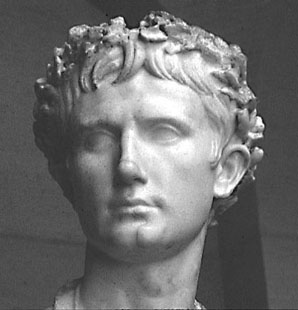From the 1772 Boston Massacre Oration, March 5, 1772:
quis talia fando/Myrmidonum, Dolopumve, aut duri miles Ulyssei, /Temperet a lacrymis. (Virgil, Aeneid Bk. II, 6-8)
“In speaking such things, what Myrmidon, or Dolopian, or soldier of harsh Ulysses, could refrain from tears?”
Omnes ordines ad conservandam rempublicam, mente, voluntate, studio, virtute, voce consentiunt (Cicero).
“All ranks consent to preserving the republic, with mind, will, zeal, excellence, and voice.”
At simul heroum laudes, et facta parentis/Iam legere, et quae sit poteris cognoscere virtus. (Virgil,Eclogues IV, 26-27).
“But as soon as you are able to read the praises of heroes, and the deeds of your parent, and to recognize what excellence is….”
In letter to Norwich Committee of Correspondence dated August 28, 1774
Salus populi suprema lex esto
“Let law be the highest welfare of the people.”
In letter to Samuel Adams dated September 4, 1774:
May God bless you and my other friends with you! (mutatis mutandis.)
(with the things changed that ought to be changed, or necessary changes having been made)
Letter of Samuel Adams to Dr. Young, October 1774:
Inter arma silent leges
“Among arms, laws are silent.”
From 1775 Boston Massacre Oration, March 6, 1775:
Tantae molis erat, Romanam condere gentem. (Virgil, Aeneid I.33)
“Of such great effort it was, to found the Roman race.”
Qui metuens vivet, liber mihi non erit umquam. (Horace, Epistle I.16.65)
“The one who lives afraid will not ever be free to me [that is, in my view].”
Letter to Joseph Reed dated May 15, 1775
(Concerning Tory Governor Thomas Hutchinson…)
Flectere si nequeo superos, Acheronta movebo (Juno’s maxim)
“If I am not able to bend those above [the gods], I will move Acheron [a river in Hades].” In other words, if I can’t persuade Heaven, I’ll stir up Hell.
Letter to Samuel Adams dated May 25, 1775 (Concerning need for Continental Congress to assume control of the New England minutemen besieging Boston)
“…I assure you inter nos, that, unless some authority sufficient to restrain the irregularities of this army is established, we shall very soon find ourselves involved in greater difficulties than you can well imagine.”
“…I assure you between ourselves, that, unless some authority….”
Words attributed to him prior to the Battle of Bunker Hill, June 17, 1775:
“Dulce et decorum est pro patria mori.” (Horace, Odes III.2.13)
“It is sweet and noble to die for one’s country.”
Eulogy by Perez Morton, April 1776:
Amor patriae was the spring of his actions, and mens conscia recti was his guide
“Love of the fatherland was the spring of his actions, and a mind conscious of the right was his guide”
Sources: various, as stated. The picture is of a bust of the ancient Roman poet of Augustan times, Horace (65BC – 8BC).
Commentary: Joseph Warren and many of his college educated compatriots quoted Classical Roman authors freely among one another in Latin in their correspondence, and publicly on formal occasions such as the Boston Massacre commemorative orations. In Warren’s case I have not encountered any inappropriate usages, as might have occurred if his knowledge of the ancient authors were shallow, nor anti-intellectual resentment of his use of Latin among those of his extensive network of friends and associates who were not educated in the Classics.
For the convenience of those of us who are unfamiliar with Latin, I have collected here a number of Warren’s uses of Latin phrases as he inserted them into his writings, offer translations, and sometimes identify specific source works from which they came.
Joseph Warren is closely associated with the phrase, “Dulce et decorum est pro patria mori.” Most often this is without noting that it is a line from one of Horace’s patriotic odes. Elbridge Gerry recalled it as among the last words of Joseph Warren. Other writers of the time applied it generically to heroes who died in war.

 Follow
Follow